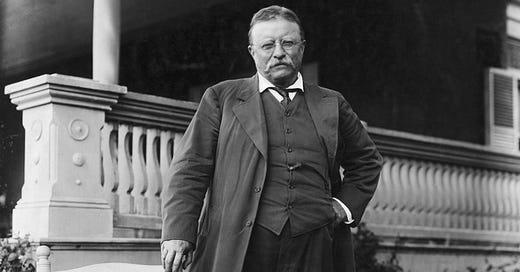Retire the Great-Cause Progressive
“O LORD, I am not proud; I have no haughty looks. I do not occupy myself with great matters, or with things that are too hard for me.” Psalm 131:1, Book of Common Prayer
Societal progress- you hear this phrase constantly in political polemics, social appeals, and charity galas alike. What does it mean? The invocation of progress implies that society is inexorably ‘advancing’ to a point of greater goodness, freedom, safety, prosperity, or whatever other positive adjective. This progressive mindset instills in you a very utilitarian view of morality: that you’re called to do the most possible good for the greatest possible number of people. This conception of how society changes over time fails to deliver the promised volume of good. Its concentration is too broad. Its implication is that only a powerful individual using a superstructure such as a state or an NGO can change the world, and thus removes your attention from the real arena where the world is changed: within your own heart. If you feel powerless to change your world, you might be thinking too much about the ‘big picture’.
That may sound like a loaded, moralizing claim. Let me explain. I heard a podcast from Art of Manliness recently about ‘commencement speech morality’. There is one overarching, daring message from these big-wigged speakers: go out and do grand things that change the world. The progressive posture of a post-liberal world encourages this. The progress mindset favors structures over our society which are said to guarantee freedom and liberty for the individual, and therefore it is in those structures alone that sweeping changes must occur.
Ironically, this call to action distances the responsibilities of morality from the individual. It externalizes the challenges of being good in society. You see yourself as a do-gooder reformer, while your own inner and near life lays comparatively neglected. This creates outrage in you, the self-perceived progressive ‘good guy’, against those who either caused the problem you want to fix, perpetuate it, or who resist your effort for reform. That outrage makes you worse off morally by distracting you from the present. Your attention is taken off your immediate moment and environment, and you’re less concerned with being good in the small thing so that you can affect a large-scale change in thousands of other lives.
Realistically, few of us are called to be great-cause progressives. In most lives, battles are immediate, humble in scale, and mundane. Many are repetitive and test your endurance more so than your capacity for grandiose vision or moralizing. You do more good when you fight those little battles. It matters what you do or don’t do in the silence of your heart, or when no one is looking. It matters more how you treat a coworker than what your opinions are about fair labor practice. You are doing more tangible good by stopping to talk to a homeless person than by brainstorming initiatives to solve homelessness.

This isn’t about making a utilitarian argument of doing the most good for the most people- that is commencement speech morality. This is about doing the good you’re responsible for in the situations your life presents. It is also permission to leave alone undue or unassigned burdens. It’s good to have a cause that is important to you, but not at the cost of a virtuous personal life. You’re called to charity in the place you live, to the people you encounter. Any other duty is elective. Elective undertakings can present the danger of becoming an outraged moralizer or a meddler who others dread.
“What torrents of effortless eloquence would have flowed from them (the moralizers) to swell any slight superiority on the part of Martha, what splendid sermons about the Joy of Service and the Gospel of Work and the World Left Better than We Found It and generally all the ten thousand platitudes that can be uttered in favor of taking trouble- by people who need take no trouble to utter them." - GK Chesterton, "Everlasting Man: The Riddles of the Gospel"
This has been a phenomenon I’ve dealt with personally. Clubroom Conversations is a blog that only about 40 people read weekly. Sure, when I started CC, I dreamed of having 5,000 subscribers and a portion of those paid to the point where I could take part-time income off the writing. But I’m forced to wonder if it is better to have 20 subscribers in one town than 200 across ten towns. The minute changes toward virtue and common struggle in 20 hearts could change the course of 20 families, up to 100 lives, maybe even the entire town. If I change my hometown with a blog, I have more effectively influenced my environment than if 5,000 readers spread across the world benefitted from my writing.
The utilitarian brainwashing in me wants to say, “Scale is everything, other blogs have more subs, I need this to be impactful for it to be worth my time”. Those voices are lying. This isn’t a call to fear growing a business or a webpage. I’m not suggesting that it’s a bad thing if you happen to gain such influence on a large scale. This is a call to first concentrate on your immediate environment. Start with the man in the mirror. Work where you are. Change your heart today. Pursue virtue in the mundane day-to-day, and you will change lives.
“He that is faithful in that which is least is faithful also in much: and he that is unjust in the least is unjust also in much.” Luke 16:10:




great post. good writing and i especially like the focus on process rather than result, on local influence rather than net influence.